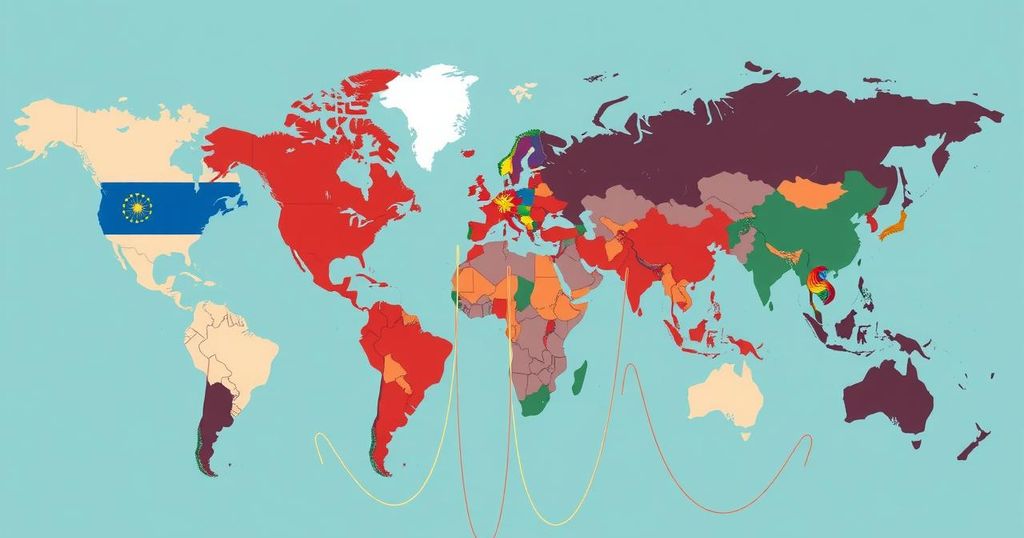2024 Global Elections: A Turbulent Year of Political Discontent and Change
The 2024 global election season revealed widespread voter dissatisfaction, resulting in significant losses for incumbent governments across many countries. Economic instability, social unrest, and shifting political landscapes spurred the rise of populist and far-right candidates. Allegations of foreign interference complicated the elections, which highlighted ongoing challenges to democracy as public confidence wanes.
In 2024, global elections reflected widespread discontent, with voters across approximately 70 countries delivering a clear message of dissatisfaction toward incumbent governments. From South Africa to India and the United States, the elections marked a notable shift, with numerous sitting leaders being unseated by opposition parties or emerging populist figures. Prominent themes included economic instability, social unrest, and reactions against authoritarian governance, as demonstrated by mass protests in Mozambique and Georgia, alongside an annulled election in Romania. Significant electoral victories for the far-right have underscored a global trend toward conservative populism, raising questions about the future trajectory of democratic ideals worldwide. Amid allegations of external interference, notably by Russia, elections became increasingly contentious, highlighting a volatile political landscape heading into 2025.
The year 2024 witnessed an unprecedented wave of elections, encompassing nations that collectively represent around half the global population. The outcomes were characterized by anti-incumbent sentiment largely fueled by lingering effects from the global pandemic, economic turmoil, and social injustice, particularly high unemployment and inequality. As various governments struggled to maintain public confidence amid these crises, many were ousted, paving the way for new leadership, often from populist or far-right parties. This political evolution indicates growing disenchantment with traditional political structures and a desire for change among voters.
In summary, the elections of 2024 signify a pivotal moment for democracies worldwide, characterized by a marked rejection of incumbents and a rise in populism. Economic and social discontent have galvanized voters to seek alternatives, often turning to the far-right and disruptive figures who promise change. The implications for democracy are profound, suggesting that while the theory of democracy remains appealing, the practical realities are increasingly failing to meet public expectations, necessitating a reevaluation of governance models globally.
Original Source: www.clickondetroit.com




Post Comment